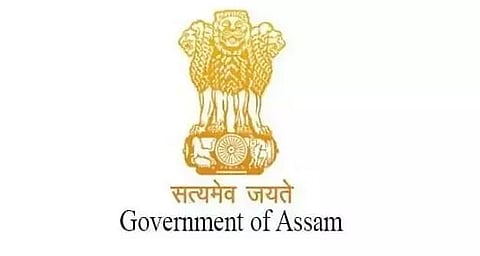
- Home
- Live Blog
- Breaking News
- Top Headlines
- Cities
- NE News
- Sentinel Media
- Sports
- Education
- Jobs

STAFF
REPORTER
GUWAHATI: The State Government adopted the Assam State Data Policy-2022 (ASDP-2022) with the objective of laying down the principles and direction on data accessibility in both human-readable and machine-readable forms.
It is the first of its kind in the state. The government entrusted IAS officer Dr Jeevan B as the chief data officer to implement ASDP-2022. The Department of Personnel issued a notification to this effect recently.
The notification said that the Chief Data Officer is responsible for overseeing the day-to-day implementation of the State Data Policy for data management and governance to help collect, collate, process and publish data in line with ASDP-2022.
ASDP-2022 is necessary for safeguarding citizens' right to privacy toward data-driven governance with data derivatives serving as a public good to enhance government efficiency, improve access to quality public services and delivery of citizen-centric benefits, and help advance digital transformation. It will also lay the foundation to build a social registry for efficient and targeted public service delivery.
The ASDP will promote data usage as a valuable asset across departments, institutions, and autonomous bodies of the stategovernment, thereby contributing to the overall growth strategy for the state.
Benefits of ASDP-2022 are –
(i) Equity of data access: The ASDP practice of open access data will ensure better access to all bona fide users.
(ii) (ii) Maximizing data use: Access to government-owned data will enable the more extensive use of the information to deliver services and facilities in an efficient and transparent manner.
(iii) Maximized integration: The adoption of common standards and best practices across various datasets and MIS (Management Information Systems) would facilitate the integration of individual datasets.
(iv) Interoperability to avoid duplication: The need for separate bodies to collect the same data will get minimized by facilitating the sharing of required data across departments. It will result in significant time and cost-saving in data collection and also elicit a rounded perspective on the performance of government initiatives and schemes.
(v) Better decision making: Availability of data will enable data-driven decision-making along with avenues and platforms for monitoring, reporting and planning.
(vi) Better tracking for policy implementation: Real-time availability of data will allow and open pathways for live tracking of policy implementation and impact, especially for welfare schemes.
(VI) Enhanced and efficient delivery of services: Data sharing and interoperability through this policy will be instrumental in reducing leakages and plugging loopholes in the delivery of welfare services.
Also Read: GRADE-III, GRADE-IV POSTS: Recruitment process to be completed by early 2023
Also watch: